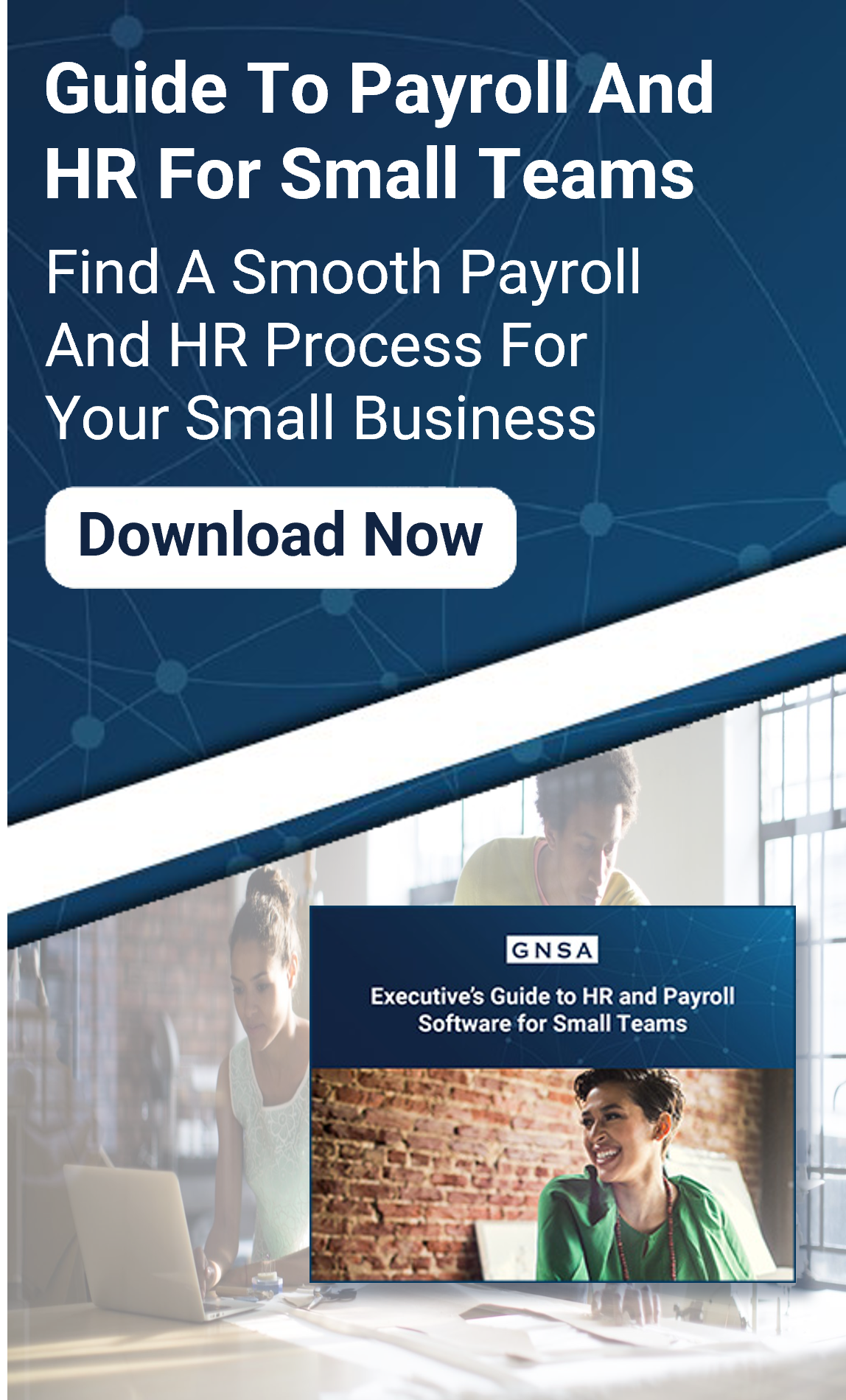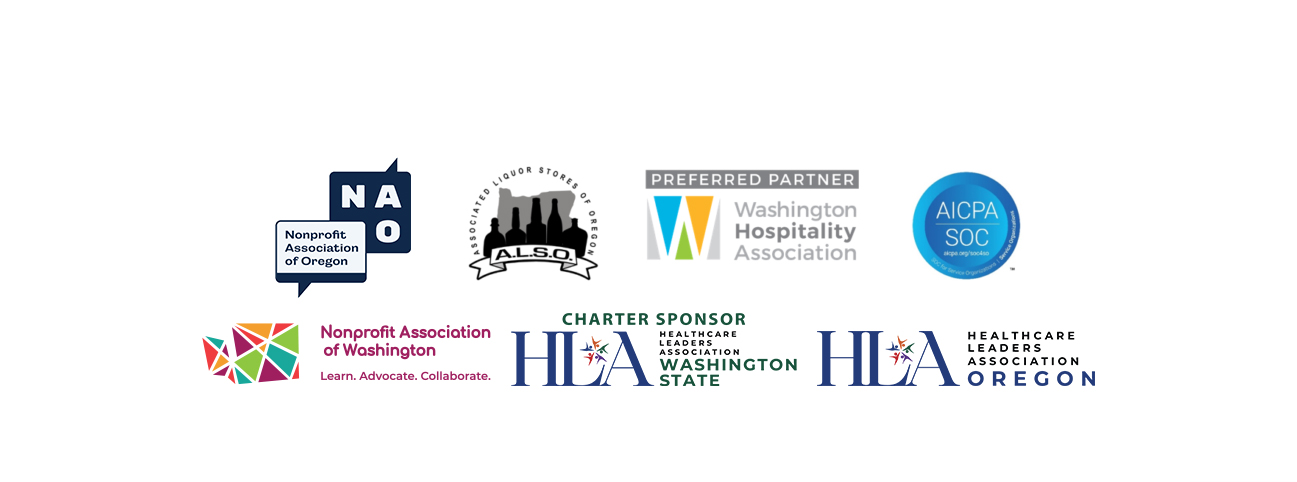This article covers the most common small business payroll questions, including benchmarks, compliance considerations, cost expectations, and how to know when it's time to hire the pros. We'll let you know what to expect and how to improve your payroll processes, whether you're handling payroll yourself or trying a cloud-based solution.
How to Do Payroll for a Small Business
Managing payroll is one of the most important and challenging responsibilities that small business owners face. From keeping up with federal laws to calculating payroll costs, it's a formidable task. With the day-to-day tasks required to keep operations running smoothly, you have little time left for payroll, making it overwhelming.
But small business payroll is completely doable with the right knowledge. Here is everything you need to know:
What Is the Cost of Payroll for a Small Business?
There's a lot more to the cost of payroll for your small business than just your employees' wages. Here's what's usually included:
- Gross wages: hourly salaries or pay
- Payroll taxes: FICA, unemployment insurance, and more
- Benefits contributions: healthcare, 401(k), flexible savings plans, and more
- Workers' compensation insurance
- Administrative costs: accountant or payroll provider fees, software
In December 2024, the U.S. Bureau of Labor Statistics (BLS) indicated that wages and salaries made up 70.5% of employer costs for private industry workers, while benefits accounted for the remaining 29.5%. Total compensation, including wages, salaries, and benefits, represents a substantial portion of business expenditures tied to employment.
But there are hidden costs, the time spent calculating taxes, issuing year-end W-2s, and staying compliant, that are commonly missed until mistakes happen. For that reason, many small business owners turn to cloud-based payroll solutions that automate the process and reduce costly errors.
What Percentage Should Payroll Be for a Small Business?
One common question business owners ask is how much of their budget should go towards payroll.
The answer to that question is going to be different for each business and will vary based on growth stage, industry, and location. Most experts recommend that small businesses aim to keep their payroll costs between 15% and 30% of gross revenue.
Product-based businesses: Small businesses in retail or manufacturing can elect to keep payroll in the 15% to 20% range due to higher material and production expenses.
Service-based businesses: Small business, like consultancies, legal firms, or salons tend to have higher payroll ratios, often 40% or more, because labor is their primary product.
Regularly monitoring your payroll percentage can help you make better staffing decisions and stay financially healthy.
Payroll Compliance for Small Businesses
Compliance with all federal payroll laws is a top priority. Many of the regulations apply to all small businesses, even if they are a sole proprietorship.
Key laws include:
- Fair Labor Standards Act (FLSA)
- Establishes minimum wage, overtime pay, recordkeeping, and youth employment standards
- Requires that you accurately track employee time and the payment of overtime (1.5x pay) for non-exempt workers who work more than 40 hours each week.
- Federal Insurance Contributions Act (FICA)
- Employers must withhold both Social Security and Medicare taxes from employee wages and match those contributions.
- Federal Unemployment Tax Act (FUTA)
- Employers are required to pay a federal unemployment tax to fund state workforce agencies.\
- Equal Pay Act
- Prohibits wage discrimination based on gender for employees performing similar work.
- Form Filing Requirements
- W-2s, 1099s, Form 941 (quarterly tax return), and others must be filed accurately and on time per federal guidelines.
On top of the federal laws, you'll also need to comply with state-specific payroll rules and tax filings, which can vary widely. That's one very compelling reason to use payroll software or a provider to significantly reduce your risk of non-compliance.
When Should a Small Business Stop Processing Payroll In-House?
Most owners will tell you they started their small business payroll manually or using ordinary spreadsheets. As your business grows, so does your time and risk commitment.
Here are the signs it might be time to stop processing payroll in-house:
- Too much time is spent on payroll tasks each month.
- You're making costly errors like incorrect pay, missed filings, and late tax deposits.
- Your team is growing, adding part-time, full-time, or remote employees across different states.
- You have doubts about your compliance with all labor regulations and/or tax laws.
- You don't have the infrastructure to offer benefits, direct deposit, or automated tax filings.
If payroll is consistently keeping you from your core business or opening you up to legal risk, it's time to find a better solution.
Payroll Best Practices for Small Businesses
Whether you're managing small business payroll in-house or through a provider, there are a few best practices that can improve your process and protect your business.
- Automate When Possible - Using a cloud-based platform or payroll software makes your life easier. They automate calculations, deductions, direct deposits, and tax filings, which greatly reduces errors and saves you valuable time.
- Keep Accurate Records - Keep detailed records of all hours worked, pay rates, payment history, and tax documents for all employees and contractors. Keep in mind, you're required to keep these records for at least three years.
- Understand Employee Classification - Not knowing the difference between employees and independent contractors and misclassifying them can lead to steep penalties. Review all IRS guidelines and consult with a tax professional when needed.
- Stay Current on Regulations - Payroll laws change frequently. To stay on top of compliance changes that impact your small business, subscribe to updates from the Department of Labor and the IRS.
- Set a Payroll Schedule - Keep your pay frequency consistent (bi-weekly, semi-monthly, etc.) and don't waiver. Employees are more loyal to employers when they know they'll be compensated for their work in a timely, reliable manner.
- Plan for Payroll Taxes - Set aside payroll taxes immediately after payroll is run. Don't use those funds for other business expenses. Late payments lead to penalties.
Payroll and Paycheck Services for Small Businesses
Small business payroll isn't just another administrative task. It's a vital part of your business's financial health and legal compliance. Even unintentional mistakes can be costly ones. Keep your business running smoothly and your employees happy by understanding all payroll costs, keeping up with all federal laws, and knowing when it's time to upgrade your payroll system.
Ready to simplify your small business payroll? If you're done with all the manual work, the stress of tax deadlines, or worries about compliance, it's time to consider a better solution.
Contact us today to learn more about how GNSA can help your payroll and HR operations, and let you focus on running your small business. Or, keep learning more about when it's time to switch payroll providers.



.png)


